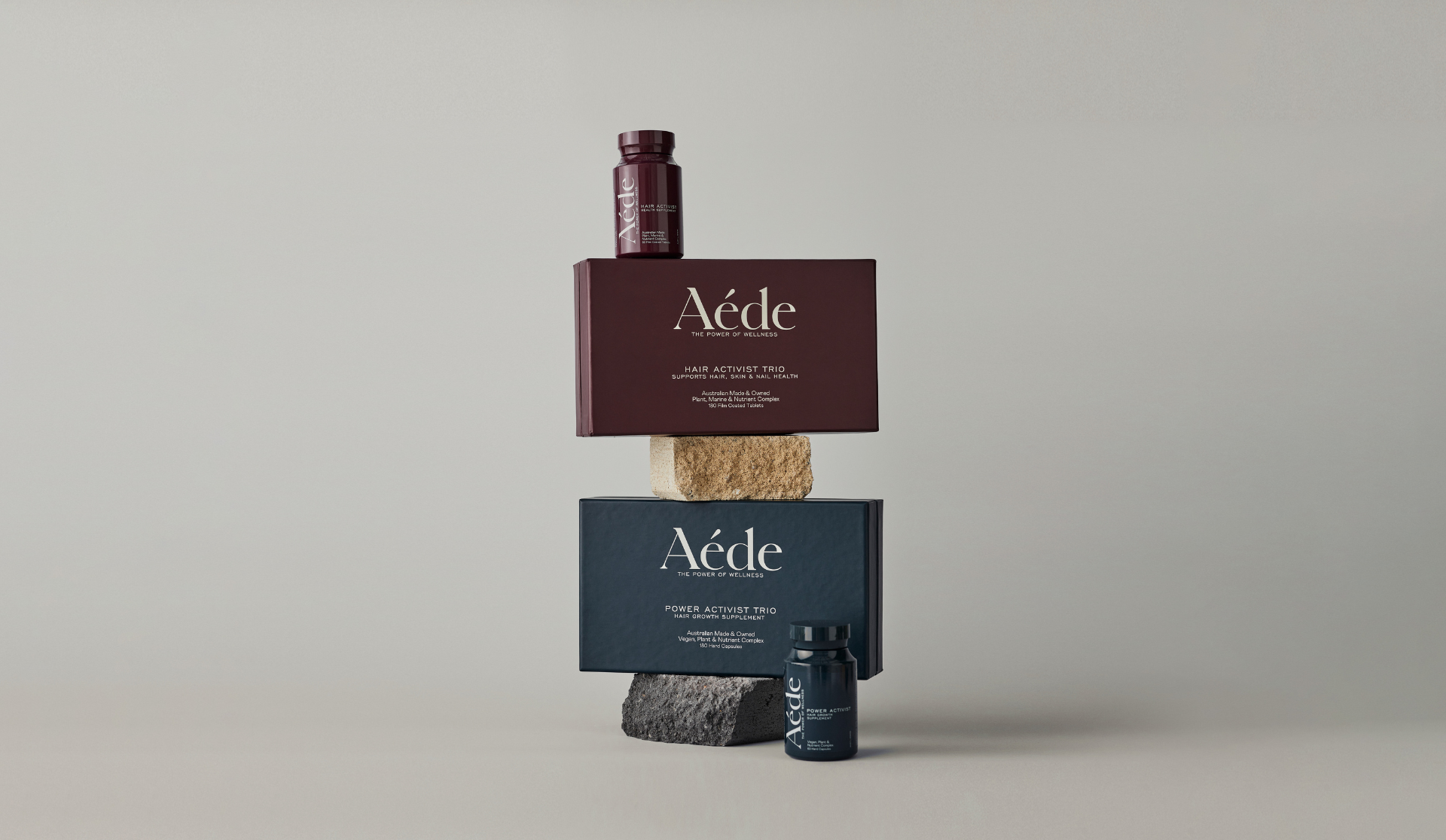Experiencing hair loss can be distressing and disheartening, but there are effective (science-backed!) ways to combat this surprisingly common issue. (The Australian Journal of General Practice, a peer-reviewed resource of evidence-based information for general practitioners, estimates that approximately 49% of Australian women will be affected by hair loss as adults, with female pattern hair loss being the most frequent cause.)
In this guide, we’ll share practical solutions and strategies that can help stop hair loss and thinning in its tracks, and look at simple things you can do to promote healthier, thicker-looking hair. From lifestyle adjustments to targeted treatments, let's delve into what can help halt hair loss and thinning, and how.
Why does hair loss happen?
Before we delve into potential remedies, let's go over the basics. Hair loss can result from various factors, including genetics, hormonal changes, stress, and nutritional deficiencies. Identifying the root cause is essential because to combat hair loss and thinning effectively, you’ll need to adopt a personalised approach.
Proven ways to stop hair loss
Embrace a Nutrient-Rich Diet:
A nutrient-rich diet plays a crucial role in maintaining healthy hair because hair follicles require a range of essential vitamins, minerals and nutrients to support growth and function optimally. Hair is primarily made up of a protein called keratin, so adequate protein intake is necessary to provide the building blocks of your strands. Biotin helps to prevent breakage and brittleness; zinc supports scalp health by playing a role in tissue repair; adequate iron ensures that hair follicles receive oxygen and nutrients; vitamin C aids in plant-based iron absorption and supports collagen production, which is vital in maintaining the structural integrity of the hair; sufficient vitamin D levels are associated with reduced hair loss and improved growth; omega-3 fatty acids are anti-inflammatory which can benefit follicles and are also crucial for maintaining a health scalp.
Consuming a nourishing diet rich in vitamins and minerals (especially biotin, zinc, iron, vitamin D, vitamin C and omega-3 fatty acids) can nourish your hair from within to support growth. Load up on foods like leafy greens, nuts, seeds, eggs and fish, or consider a supplement like Hair Activist or Power Activist if you need it.
Prioritise Your Scalp Care:
A healthy scalp provides a fertile ground for hair growth. We now know that neglecting the scalp can lead to issues like excessive dryness, oiliness, dandruff and thinning in the long run. For instance, a dry, irritated scalp can result in brittle, lacklustre hair; an oily scalp can contribute to clogged hair follicles that hinder proper growth. Prioritise scalp care as an integral part of your hair routine by investing in gentle shampoos and conditioners that prevent these concerns and help to create an optimal environment for hair to grow.
Consider using a scalp exfoliator occasionally to remove product buildup and promote better circulation. You might also consider incorporating scalp massages using stimulating essential oils like rosemary, tea tree or peppermint to soothe inflammation, dial up blood circulation and enhance hair follicle activity.
Every scalp will need different things to flourish, so if you’re unsure what products and techniques suit you best, check in with your hairdresser or make an appointment with a dermatologist to get you started.
Reduce Stress and Prioritise Self-Care:
Stress has been shown to contribute to hair loss, so managing your levels can be crucial. Engage in regular self-care, whether that be physical exercise, scalp gua sha, practising mindfulness and meditation, or speaking with a healthcare professional. If stress is affecting your well-being, see a doctor for individualised advice.
Explore Prescription Treatments:
For those who don’t see results with at-home treatments for hair loss, a dermatologist appointment might be in order. A dermatologist will thoroughly assess your concerns and may prescribe a medication. Minoxidil and finasteride are two options that have shown results in stimulating hair growth and halting further loss.
While hair loss can be a challenging and emotional experience, taking proactive steps can help to prevent further thinning and promote hair growth. And remember, for best results, it's essential to consult with a healthcare professional or dermatologist to develop a personalised plan tailored to your specific needs.
Important reminder: While some individuals may experience significant improvement in hair growth, others may not. Other factors (like genetics, overall health, and lifestyle habits) also play a role in determining hair growth outcomes.


